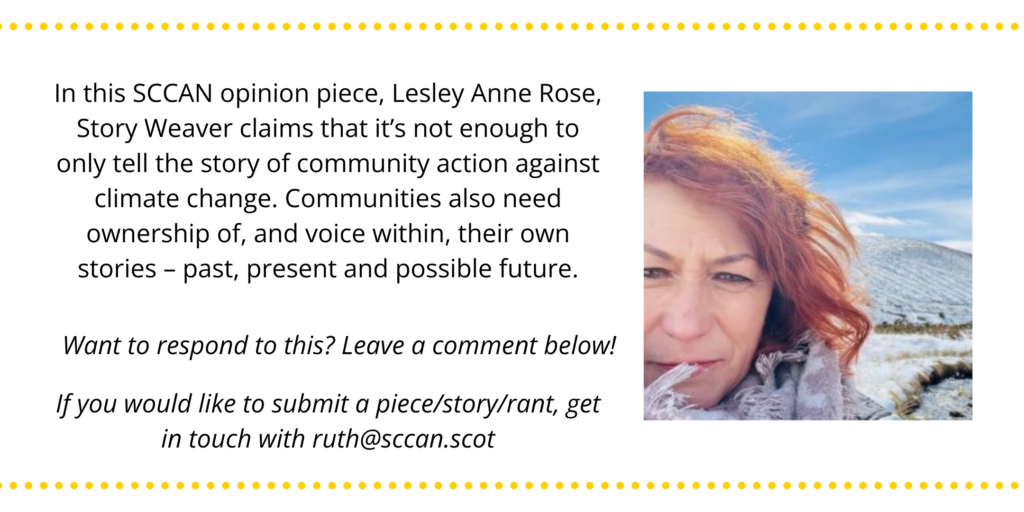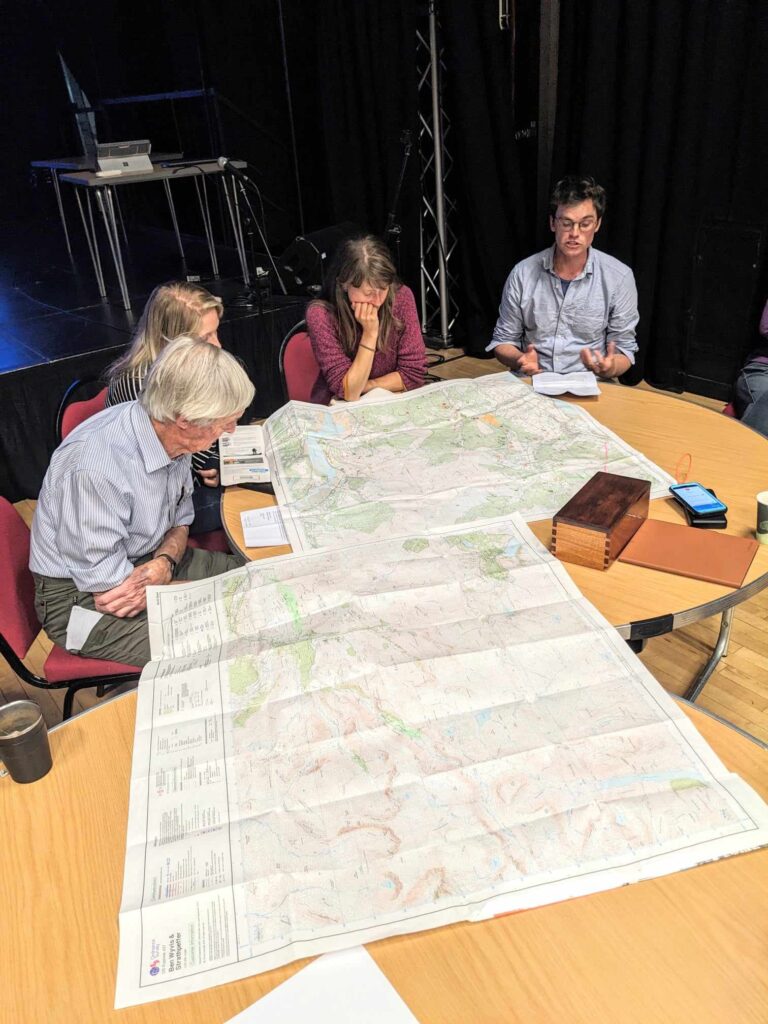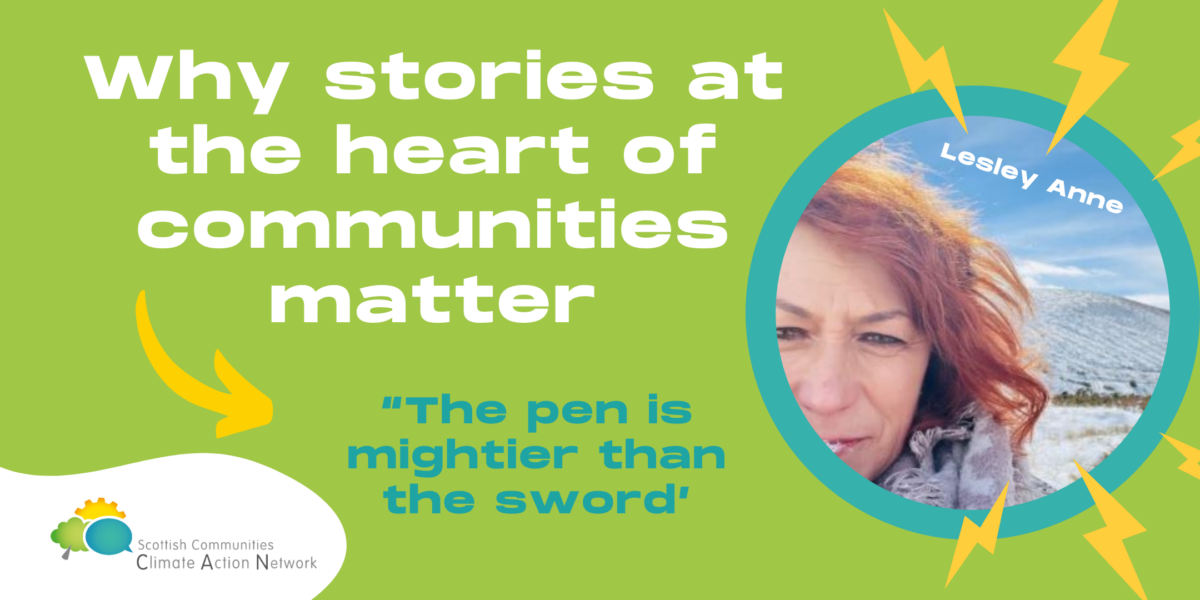
To quote Shakespeare “The pen is mightier than the sword’.
As one of the Story Weaver team at SCCAN, I’m passionate about the power and potential of the written word to change the world. Although I’d like to widen Shakespeare’s sentiment and claim that ‘stories are mightier than swords.’
To share some examples, the number of mature women returning to education significantly increased after the film Educating Rita was released. While many of us will be familiar with the rapid sign ups for SNP membership after film audiences poured out of cinemas fresh with the impact of Braveheart in their own hearts.
Here at SCCAN, with far less budget, we have a remit to tell 1000 Better Stories, which shine a light on the good news and positive stories of community action against a changing climate. In doing so we aim to show that a better future is not only possible, but that many people at a community level are undertaking a whole heap of inspirational work to make it a reality.

However, I believe there is something more powerful that can be achieved through story and community, and that inspiration lies in our pre industrial past. In the century that followed the Battle of Culloden, landowners ‘cleared’ the Scottish Highlands and Islands of most of its crofting communities through mass evictions. Communities and their way of life fell apart as residents scattered into new lives elsewhere. With no coherent community to be part of, the role of the bards, storytellers and tradition bearers that had formally been at the heart of community life became redundant. The oral histories they once held became lost. The ability for people to document the story of their lives went along with it. Community stories weren’t only about each other, but also held narratives of their relationship with the land and nature – an equal and important member of any community. Post clearances, stories of the past passed into institutions in far off urban areas. While the ‘story’ of a community’s relationship with nature passed into the voices of ‘experts’ speaking on their behalf.
Stories are also an important part of national narratives and countries and people defining and knowing who they are and where they came from. Hitler understood the power of story on a national level when he planned the so called Baedeker raids in 1942. Through these raids he aimed to dent British morale by destroying the nation’s most historic cites and landmarks. The Nazis carried out air attacks on cities such as Bath and York, all of which feature in the popular German travel guide Baedeker, which the raids are named after. The Nazis knew that nations can not only be destroyed by disabling infrastructure, but also by wiping out the stories through which their populations defines itself. Which of course raises the question of who is telling the story of nationhood that populations buy into.

I believe that if you know and understand the past and have voice in the present, you can also have agency in the future. And that this is especially important for communities and the climate crisis we are all facing. As part of their response to the covid-19 pandemic the Scottish Government poured funding for culture into communities. Initially to help recovery, but subsequently because the impact and potential of this work has been proven and won awards. With this funding some parts of Scotland are bringing back the role of community storyteller or tradition bearers. Community theatre and oral history projects are springing up around Scotland, along with storytellers in residence. More powerful still in terms of building better futures, oral future projects are also taking place. All of which are small, but collectively important steps to re-introducing the concept of the past, present and future as a continuous narrative. One in which individuals and communities can have voice within.
Long may the Scottish Government invest funding for culture into the heart of communities. I hope it will enable more projects that bring ownership of, and agency within, story back into community life and structure – both rural and urban. And that none will forget to include the voice of nature as a valued member of community life and give it voice in our story of the future.


One reply on “Why stories at the heart of communities matter”
Fantastic piece- thankyou for spelling it out so clearly!
It sums up why we need to support art & culture and for it to be supported.
Interesting about Educating Rita and Braveheart too. I’m wanting to make a small ‘green’ Film Festival this year and struggling to find films to inspire the innocent public- on a minute budget! Any suggestions please? Two years ago I showed Seeds of Vandana Shiva, Kiss the Ground, Riverwoods & some smaller local films & bits from YouTube.
Very best wishes